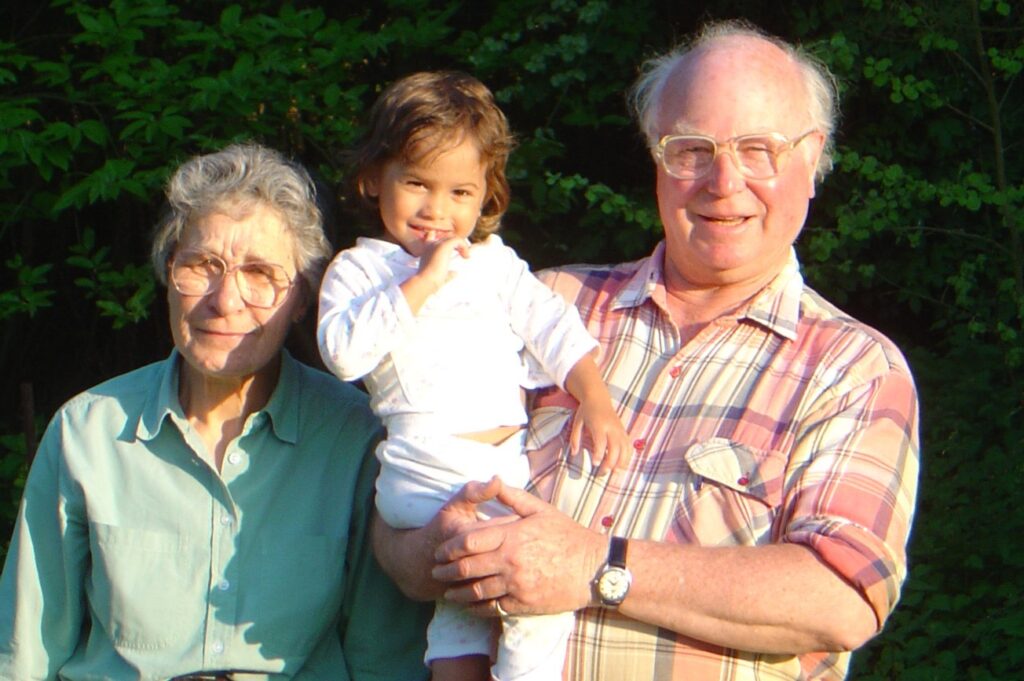
In the majority of my memories of my grandma, Sally Whitestone, she has dementia. Two years ago, after a stroke, she became bed-bound and her vascular dementia advanced until she passed this summer. She and my grandfather, now 93 years old, were married for 63 years: a time in which they travelled the world, had three children, five grandchildren, and were a great example of love to everyone around them. My grandma was kind, observant, witty and had great comedic timing right up until she passed. Having worked as a secretary for MI5, she had a sharp memory and was efficient in everything she did. The unfortunate truth of dementia is that you can’t control how or when it will affect you or the people around you. Whilst she still could, we played scrabble with her, recounted moments from her life, and did what we could to slow down the process of losing parts of her.
When she became bed bound, she required almost full-time care. My family were determined to allow her to live out the rest of her life with my grandad and in the comfort of her home. To do this, we had carers come three times a day to tend to her medical needs, and my aunt, mother, and sister took on the role of unpaid carers, taking it in turns to live with and look after my grandma. Just as importantly, they looked after my grandad as he processed the gradual loss of his wife. Other family members visited often as a gentle relief and a distraction from what he understandably didn’t want to accept was happening. He didn’t need to be strong, that is what everyone else was there for, but he wanted to be there for her, and he was. Throughout, he was calm, loving, and never left her side.
When I came home from uni during my holidays, I did what I could to help, too. I didn’t feel as though I was equipped to support my grandparents as well as everyone else was, and I felt a bit detached being 300 miles away. I called my grandad regularly, and when I came home, I cut both of their hair, bonded with my grandad over our shared love of nature, and sometimes stayed with them to relieve my family from the care they were doing. It can be upsetting for a lot of people having to cut their loved one’s nails whilst they wail, having to spoon feed them every meal or hear them cry out in the middle of the night. I didn’t mind doing it. It was hard, but my grandma has done the same for me as a child. To provide care and comfort to her felt right and gave me more time with her. The hardest part was to see how my family was affected by it all. Nobody wants to see the person they love in that condition having known the person they once were. I am proud of everyone in my family for doing as much as they individually could in the ways that were accessible to them.
In grief it can be easy to feel guilt and anger, although accepting that you feel that way can be hard. Too often we focus on what we didn’t do and not enough on what we did. The drawn-out loss of my grandma was a difficult time in all our lives, but what amazed me the most was that, even though it took a mental and physical toll on my family, everyone made sure my grandma felt loved. This is a feeling which, to me, seems to be what human beings can comprehend best from the day they are born to the day they die. There is no doubt in my mind that the selflessness of caring for someone, in whatever capacity you can, resounds with them more than they can maybe express. We are lucky that we could support my grandma in living at home, and we could have medical support too. The position you are in maybe be very different, and you may not have a close support system, but there are people who will understand and who will listen. Although I am not a member of NU Carers, I am so pleased to know it exists for anyone who might need support, an ear, a voice, or a friend, and it is a pleasure to support them in any way I can.
-Taz Nasif, EDI Student Intern for Staff Networks
